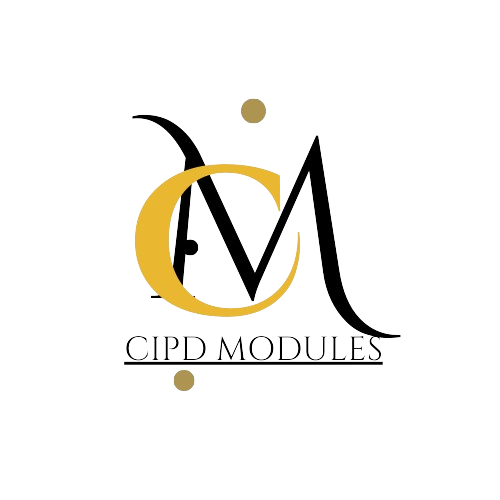
Unit description
In the realm of 5CO03, the orchestration of professional behaviours intertwines harmoniously with the art of valuing individuals. This intricate dance involves not merely adhering to a list of prescribed actions but rather embracing a profound commitment to nurturing robust inter employee connections while safeguarding their welfare within the organizational tapestry.
At its core, this module unfurls a canvas adorned with vibrant strokes of inclusivity, courage, and ethical rectitude. These shades, when deftly brushed onto the corporate palette, paint a portrait of a workplace where every voice resonates, where audacity kindles innovation, and where moral compasses guide the collective endeavour. Thus, the symphony of this unit reverberates with the cadence of progress, echoing how the crescendo of organizational achievement finds its crescendo through the mastery of these newfangled professional rituals.
Here’s what you’ll learn
Within this educational voyage, students embark upon a voyage of discovery centred around the intricate interplay of ethics and professionalism requisite for navigating the terrain of people practice. Through the lens of this unit, the aperture of understanding widens, offering a vista into the mosaic of virtues demanded by this dynamic field.
Steered by the compass of comprehension, learners chart a course towards grasping the very bedrock of becoming a proficient people practice professional. This involves deciphering the keys that unlock the gates to this realm, integrating the alchemy of ethics and personal principles into the crucible of real-world scenarios, and wielding the influence to orchestrate symphonies of thought and behaviour through the crucible of meaningful discourse.
Yet, this odyssey doesn’t merely rest on the plane of theory. Instead, it unfurls the map of collaborative inclusivity, revealing paths that wind towards the summit of business efficacy. Here, students not only learn to weave the tapestry of cohesive teamwork but also delve into the profound nuances of employee well-being within the sanctuary of the workplace.
As the journey continues, the horizon broadens to unveil the architecture of interpersonal relationships – a blueprint for nurturing bonds that fortify the very edifice of an organization. And as the tides of knowledge rise, so too does the awareness of the evolution of the people professional, a metamorphosis that requires unwavering commitment, the pursuit of knowledge, and the alchemical transformation of improvement.
Thus, this unit becomes a crucible wherein students distil their self-awareness, crystallize their strengths and frailties, and craft a symphony of growth. Its ultimate orchestration culminates in the harmonious notes of triumph, echoing the potential for success etched in the footprints of those who traverse its enlightening path.
The unit is suitable for those who are
This unit holds paramount significance across diverse qualifications and professional domains. The following delineations serve not as rigid prerequisites, but rather as guiding beacons illuminating the traits that could greatly bolster the suitability of individuals considering its pursuit. Individuals:
- Engaged in Human Resources or Learning and Development: This unit resonates with those currently immersed or aspiring to be part of the human resources or learning and development landscape. Whether you’re already working within these realms or aiming to step onto this dynamic stage, the unit’s offerings align with your journey.
- Charged with Strategy and Policy Implementation: If your role entails steering the implementation of strategies and policies rooted in human resources or learning and development, this unit becomes a compass guiding your efforts. It equips you with the necessary tools to navigate the intricate landscape of strategy enforcement.
- Possessing Relevant Work Experience or Degree: A reservoir of relevant work experience or a corresponding degree acts as a fulcrum upon which this unit can elevate your career trajectory. Your existing knowledge and background blend harmoniously with the unit’s teachings, enhancing your professional journey.
- Holding a CIPD Level 3 Diploma or Certificate: Those who’ve undertaken studies at the diploma or certificate level in CIPD (Chartered Institute of Personnel and Development) Level 3 find this unit to be an apt progression. It seamlessly complements and expands upon your existing knowledge base.
- Nurturing Aspirations in People Management: Aspiring to cultivate a career within the realm of people management, this unit provides you with a scaffold to build upon. Its content and insights resonate with your aspirations, aiding you in constructing a solid foundation for future growth.
In essence, this unit beckons to a spectrum of individuals, signalling a common thread of affinity. It acknowledges diverse pathways and backgrounds while extending a welcoming hand to those seeking to hone their acumen in human resources, learning and development, and people management.
The learning outcomes.
Upon traversing the expanse of this educational terrain, students will emerge with the mastery of three overarching learning outcomes. These outcomes, characterized by their comprehensive nature, bestow upon learners a panoramic vista of capabilities that transcend mere competence, emboldening them to fulfil their professional obligations with distinction. The three resolute learning outcomes are outlined as follows:
- Application of Ethical and Professional Behavior in People Practice: Under this pivotal learning outcome, students cultivate an adeptness in translating their acquired knowledge and skills into tangible actions within the realm of people practice. By example, they not only cultivate the indispensable skills and behaviours synonymous with the people profession, including inclusivity, candour, equity, and justice but also develop an astute comprehension of how ethical and personal values interweave within the organizational fabric to yield mutual prosperity. Armed with this knowledge, learners attain the capacity to invigorate their surroundings through active engagement in discussions surrounding pertinent organizational issues. This outcome further nurtures a profound sense of accountability, empowering students to proactively identify shortcomings, rectify missteps, and navigate ethical conundrums, such as the intricate web of whistleblowing.
- Elevation of Positive Working Relations through Collaborative and Inclusive Strategies: Within this transformative learning outcome, learners are equipped with the scaffolding to understand the transformative potential of fostering harmonious relations within an organizational context. Concepts of equitable treatment, value recognition, and inclusivity come to the forefront as beacons of organizational betterment. This outcome empowers students to harness the currency of feedback and interpersonal interaction, sculpting them into instruments to craft efficacious solutions and strategies in the domain of people practice. By honing the ability to gauge the efficacy of these solutions vis-à-vis engagement and performance metrics, learners become adept at fostering inclusive work cultures and cultivating interrelations enriched with trust, knowledge sharing, and mutual growth.
- Demonstration of Commitment to Personal Growth and Professional Development in People Practice: Embedded within this culminating learning outcome lies the key to harnessing the role of people professionals as stewards of evolution. Students grasp the significance of keeping a vigilant eye on the shifting sands of their field and comprehending how these changes ripple through the tapestry of their professional journey. Empowered by introspection and feedback, learners navigate the labyrinth of self-assessment, illuminating developmental areas, strengths, and weaknesses. This outcome propels students to curate their learning odyssey, curating an array of formal and informal activities under the banner of continuous professional development (CPD). Here, the learners wield the ability to assess the transformative impact of these CPD endeavours upon their performance and behavioural canvas, thus painting a vivid portrait of perpetual growth and accomplishment.
In summation, this educational expedition unfolds as a triumvirate of transformation. Its outcomes, expansive and resolute, mould learners into torchbearers of ethical comportment, architects of inclusive work scopes, and vanguards of their growth. With these three pillars of proficiency firmly in hand, students are poised to chart a course towards an enriched professional destiny, where their steps echo with the harmonious cadence of principled action, collaborative prowess, and unwavering commitment.
What are the requirements for entry?
While the CIPD, as an entity, doesn’t lay down specific prerequisites for individuals aspiring to undertake this unit, each educational institution offering it establishes its unique entry criteria. Thus, while a concrete set of requisites may not be etched in stone, it remains imperative for prospective learners to outline their aspirations before embarking on this educational journey. By delineating their ultimate goals, learners can aptly navigate the path ahead.
For example, those eyeing a career in the realm of Human Resources (HR), such as an HR assistant, would find the foundation level 3 certificate to be an invaluable stepping stone. This foundational certificate not only opens doors but also aligns with their career trajectory, providing a sturdy foothold for professional advancement. Alternatively, learners who embark on this unit sans the foundation level 3 certificate can amplify their engagement by wielding pre-existing experience within the relevant professional milieu. This practical experience is of paramount importance since the unit’s assignments are calibrated at a degree level, necessitating a foundational bedrock of knowledge.
Hence, the entry requirements for this unit span a spectrum of possibilities, embodying:
- A relevant degree or substantial work experience in the domains of Human Resources (HR) or Learning and Development (L&D) – a precondition upheld by certain institutions.
- Possession of a CIPD level 3 certificate, acting as a cornerstone for entry into the unit.
- Proficiency in both written and spoken English, an indispensable facet of engagement. This proficiency is either established through fluency or substantiated by an equivalent to an IELTS score of 6.5 or attainment of ESOL level 2.
In essence, while a uniform set of prerequisites might not be etched in stone across the CIPD realm, the importance of charting a purpose-driven trajectory and considering one’s background and aspirations remains unwavering. It’s a landscape where the puzzle pieces of qualifications, experience, and language proficiency seamlessly fit together to compose an enriched educational voyage.
How we can help
We’ve got a team of experts who are good at handling different kinds of assignments in this unit. We’re known as reliable writers and researchers who help with both easy and hard assignments. We spend our time providing the best solutions to our valued clients because we want to give them great quality for what they invest in terms of money, trust, and time.
5CO03 PROFESSIONAL BEHAVIOURS AND VALUING PEOPLE TASK ONE GUIDELINE
Task One: Presentation on Ethical Practice in Business
The first assignment task involves creating a presentation with 1-2 slides for each assessment criterion, along with presenter notes. This presentation’s goal is to elucidate the significance of ethical practice in enhancing relationships within the workplace.

